Most MAT chiefs are lucky if they get to open one free school in their lifetime. Wesley Davies has opened three, all of which are now rated ‘outstanding’.
Davies spent the first 20 years of his career at Dixons Academies Trust, where he got first-hand experience of the emergence of the modern MAT system. As well as being instrumental in the setting up of the three academies – Dixons Trinity, Dixons McMillan and Dixons Sixth Form – he was executive principal of the latter two, as well as Dixons Marchbank Primary.
It taught him how to build a school culture from scratch, and he is now using that knowledge to expand and unite the Two Counties Trust, the nine-secondary MAT he leads in Nottinghamshire and Derbyshire.
First day setback
Davies recalls “feeling nervous” on his first day at Two Counties, having spent 20 years with the same trust. And things did not go according to plan.
While meeting his executive team for the first time and excitedly unveiling his grand vision for the trust’s future, he got the call to say that all schools would be closing for another lockdown.
As a type two diabetic with a thyroid condition, Davies was “extremely vulnerable” and had to work from home for a few months. Trying to build relations with his heads over Teams was “not ideal”.
“I had only just met everybody and they were all looking at me, to say ‘what do we do?’ It is just not the same as being in the room and getting a genuine feel for the schools.
“I couldn’t talk to the children – they’re my motivator. That was really difficult. But, as trust leader, you have to follow every guidance going.”
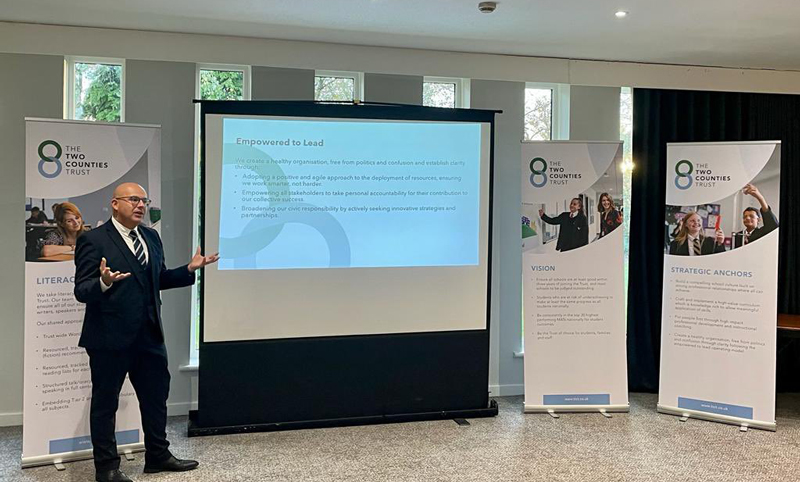
Religious inspiration
Davies believes that everything happens for a reason, which helps him through those tougher moments. He grew up in a working-class Catholic family in Brighouse, West Yorkshire, and recalls a “defining moment” at 14 which inspired his career path.
His RE teacher told a tale of a farmer whose sheep could escape from their field because of a damaged fence: “Should the farmer repair the fence to keep them safe, or allow them to roam free?”
Davies spent hours contemplating the dilemma, later realising that “I wanted to make someone think like I thought. That’s the beauty of education. It opens the mind and leaves you thinking.”
Today, he is passionate about RE, which he believes “helps people be nicer to each other”. He is proud of how, after being promoted from a fledgling RE and history teacher to head of RE in his first year at Dixons City Academy in Bradford, it became one of the school’s most popular A-level courses, with half of sixth formers studying it.
He is concerned that the removal of GCSE short course RE from performance tables in 2014, and the fact that RE is not recognised in the accountability framework, means the subject has been “knocked off the agenda” by a “cramped” curriculum.
Part of the problem is that RE is “not seen as a cool subject”, with a stigma from some parents because they had a “bad deal” studying it themselves.
“We need to challenge those generational ideas – but it’s easier said than done. You have to work hard to get to get people involved in RE.”
But that is no excuse for schools rebranding RE as “ethics” on their websites. “They want to make it cool. But you’re not being honest – kids are still doing RE GCSE.”
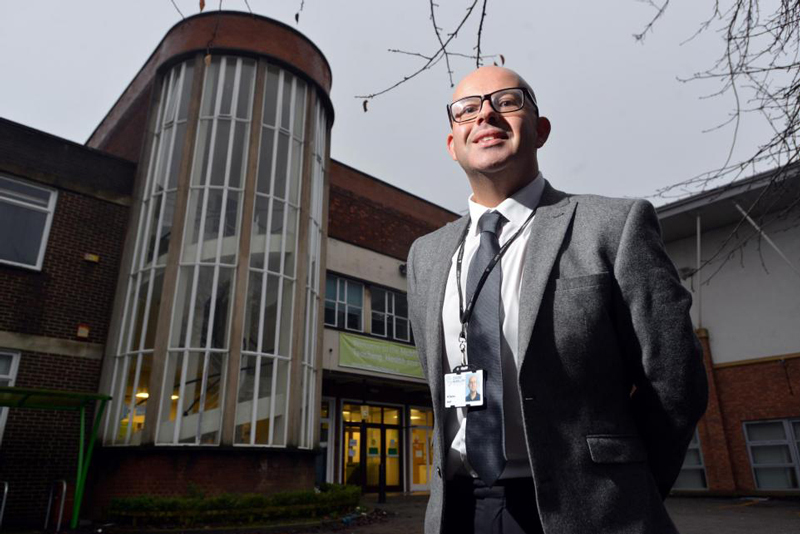
Corporate culture
Davies went on to become assistant head of Dixons City, which was one of the country’s first 15 city technical colleges, sponsored by Dixons Group.
CTCs were the first state-funded schools independent of council control, a template later replicated for academies. While Dixons Group “took a step back” after the school opened, it had already made a mark on its culture.
Davies “always felt a very strong feeling of corporateness about education, from that first day”. He believes corporate culture “instils very high professional standards” as it is “very much about leadership development, which sometimes the education sector can fail to look at”.
Dixons City academised in 2005 and, by taking on the failing Rhodesway School (now Dixons Allerton) in 2009, it was “almost the start of the MAT system emerging”.
By 2012, Dixon’s City was “one of the most over-subscribed schools in the country”, with 1,500 applications for 180 places a year. So the trust decided to open its first free school, Dixons Trinity, with Davies as vice principal.
They based the model on charter school principles, with longer school days – lessons are from 8.30am until 3.45pm – and a focus on the sort of electives and enrichment normally provided in grammar schools to “help our disadvantaged children the most”.
The school was located in “quite a deprived” inner city area but was open to all, with the authority “picking out of a hat” on the school’s behalf who would attend.
Social integration was the idea behind the open catchment. “We were bringing the city together, so it was about engineering to make sure we got that diversity – but also cohesion at the same time.”
The recipe worked. In 2014 the school became the country’s first ‘outstanding’ secondary free school.
Davies was then tasked with opening Dixons McMillan Academy, just 500 metres away and replicating the success. The school was declared ‘outstanding’ in all areas in 2017.
He puts the success down to being “really explicit” with children on expectations. An essential element of the model was “family dining”, in which pupils and teachers eat together in form groups.
Davies dipped into school budgets to ensure children whose families could not afford school meals were provided for. “It allowed more children to feel comfortable about free school meals because no one knew who was on the scheme – the meals just got brought to the table.”
The model is now deployed by London City Academy and Michaela Community School in the capital, but Davies claims it was unusual in secondaries back then.
Free school lessons learnt
Opening free schools meant working directly with the DfE and ESFA on bids, then selling the concept to parents who had to take a “leap of faith” in Davies’ abilities, without school results to back him up.
He recalls realising: “We’ve got no building and staff yet, but I need you [parents] to sign up so I can appoint some staff, and so I know I’ll start getting some money.
“Then I had to think about where plug sockets and children’s lockers were going.”
The experience was a “real privilege”, but “lots of responsibility” as “you can’t point your finger to the past [when things go wrong] because you made every decision”.
One key learning was the need to appoint more leaders early in the process – “leadership development is really key”. He also moved electives from “year groups to verticals so children got to mix with other years” much sooner, enabling the “whole school community to engage with each other”.
Opening three schools gave Davies an “obsession with the frontline” and a focus on “how the first receptionist or Senco was feeling”. He took that focus with him to Two Counties by establishing “changemaker boards” in each school, featuring staff from receptionists to department heads. Any change at trust and school level is run by those boards first.
Developing in house AP
Davies is basing his trust’s development on ideas in a book by Patrick Lencioni, Why Organizational Health Trumps Everything Else in Business, which advocates the value of developing a “compelling culture”. One way to do that is by creating in-house alternative provision in “smaller nurturing groups”, including SEND diagnoses where there is “unmet need”.
Davies believes that, nationally, alternative provision “could be improved, to put it politely” and that “we need to cater for our children ourselves”.
The trust is investing in new “reset placements” of six-week therapeutic behaviour interventions which, unlike standard AP placements, will include academic enrichment.
“Alternative providers do a lot of therapy, but children sometimes miss their English, maths and science, which then stops life chances at 16,” he says. “Sometimes mainstream schools just focus on the academic and their needs are not met.
“We’re going to try to do both. Rather than sending vulnerable children off, we’ll keep them with us, safe and secure.”
With high staff-pupil ratios, Davies acknowledges it is a “really expensive model”, which puts many schools off. But “timesavers” can be built in through “shared school staffing and curriculum models”.
‘Peanut buttering’ on attendance
He also believes that attendance is an issue that all MAT CEOs should worry about – with stubbornly high absence rates meaning staff are like “peanut butter all the time [spread too thinly] and do less on each individual case”.
Two Counties has just appointed a central attendance team of three people trained in “how we speak to parents and children” to do home visits. Davies is also reconnecting with parents disengaged from the school since Covid. A survey was sent out asking what contact they would like and face-to-face parents’ evenings have returned.
“There’s a barrier for children coming to school, and the only way we can get children to school more is by connecting with families.”

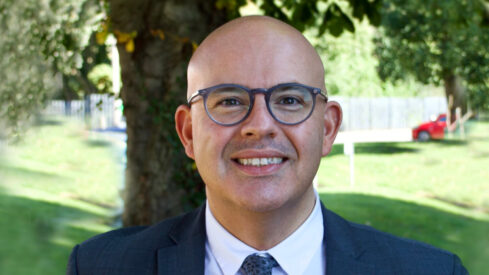
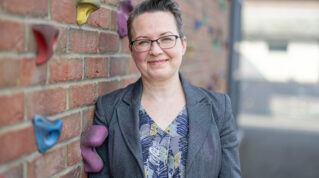
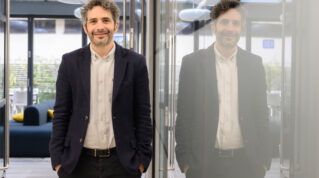

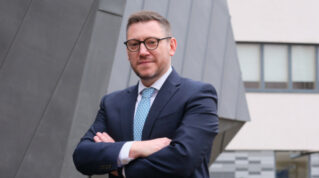

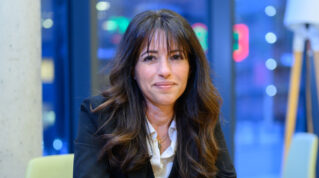

Your thoughts